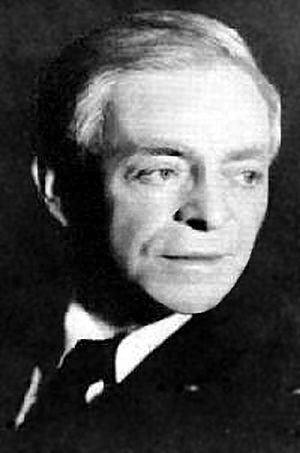Casimir Funk facts for kids
Quick facts for kids
Casimir Funk
|
|
|---|---|
 |
|
| Born |
Kazimierz Funk
February 23, 1884 Warsaw, Congress Poland
|
| Died | November 19, 1967 (aged 83) |
| Nationality | Polish |
| Citizenship | Poland United States |
| Alma mater | University of Bern, Switzerland |
| Known for | Nutritional research, formulation of the concept of vitamins |
| Scientific career | |
| Fields | Biochemist |
| Institutions | Pasteur Institute Lister Institute Funk Foundation for Medical Research |
Kazimierz Funk (born February 23, 1884 – died November 19, 1967), often known by his English name Casimir Funk, was a Polish biochemist. He is widely recognized for being one of the first scientists to introduce the idea of vitamins in 1912. He originally called these important substances "vital amines" or "vitamines."
Discovering Vitamins
Casimir Funk's important work began after he read about research by a Dutch scientist named Christiaan Eijkman. Eijkman's studies showed that people who ate brown rice were less likely to get a disease called beri-beri. However, those who ate only fully processed white rice often got sick.
Funk decided to find out what was in brown rice that protected people. He worked hard and successfully isolated a special substance from it. Because this substance contained a chemical group called an amine, he named it "vitamine."
This substance was later identified as vitamin B1, also known as thiamine. Funk believed there were many more such substances. In 1912, he wrote an article suggesting the existence of at least four "vitamines." He thought these could prevent diseases like beri-beri, scurvy, pellagra, and rickets.
Funk then published a book titled The Vitamines in 1912. He received a special scholarship to continue his research. He proposed that other health problems, such as rickets, pellagra, and scurvy, could also be treated or prevented by these new "vitamines."
Funk also looked into the problem of pellagra. He thought that changes in how corn was processed might be causing outbreaks of this disease. However, his ideas on this topic were not widely accepted at the time.
Later, scientists realized that not all vitamins contained the "amine" chemical group. Because of this, the "e" was dropped from "vitamine," and the word became "vitamin."
Funk also suggested that other important nutrients existed. These are now known as vitamins B1, B2, C, and D. In 1936, he figured out the exact molecular structure of thiamine.
Other Research
Besides his work on vitamins, Casimir Funk also studied other important areas of health. He researched hormones, diabetes, and peptic ulcers. He also looked into the chemistry of cancer.
In 1940, after returning to the United States, he became the president of the Funk Foundation for Medical Research. He spent his later years researching the causes of cancers.
It's worth noting that another scientist, Umetaro Suzuki, had also extracted a similar group of nutrients from rice bran in 1910. He called it "aberic acid." However, his discovery was not fully recognized as a new nutrient in some translations of his work.
Casimir Funk Award
The Polish Institute of Arts and Sciences of America (PIASA) gives out an award each year to Polish-American scientists. It's called the Casimir Funk Natural Sciences Award. Famous winners include Nobel Prize winner Roald Hoffmann and other important scientists like Aleksander Wolszczan and Benoît Mandelbrot.
See also
 In Spanish: Casimir Funk para niños
In Spanish: Casimir Funk para niños
 | Sharif Bey |
 | Hale Woodruff |
 | Richmond Barthé |
 | Purvis Young |

